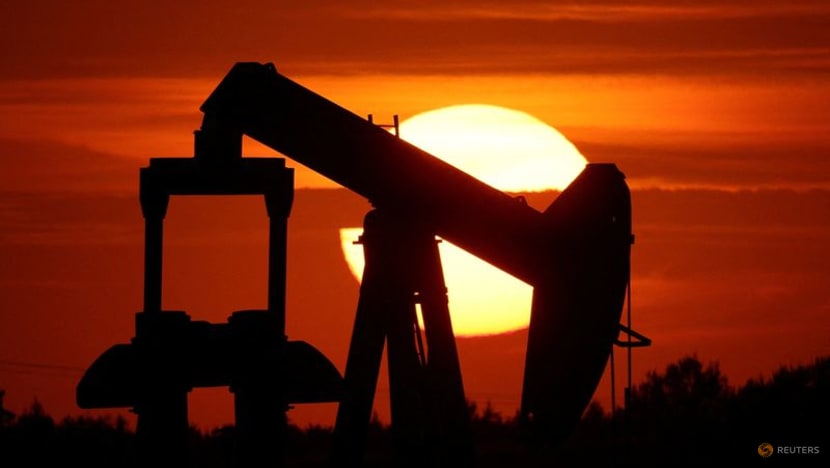Oil prices slide as China COVID-19 curbs, possible rate hikes weigh on demand outlook

FILE PHOTO: An oil pump of IPC Petroleum France is seen at sunset outside Soudron, near Reims, France, August 24, 2022. REUTERS/Pascal Rossignol/File Photo
SINGAPORE: Oil prices slipped during Asian trade on Monday (Sep 12) as the prospect of further interest rate hikes in the United States and Europe to quell inflation and the imposition of strict COVID-19 restrictions in China overshadowed the global demand outlook.
Brent crude futures dropped 78 cents, or 0.9 per cent, to US$86.01 a barrel by 12.40am GMT, after settling 4.1 per cent higher on Friday. US West Texas Intermediate crude was at US$92.11 a barrel, down 73 cents, or 0.8 per cent, after a 3.9 per cent gain in the previous session.
Prices were little changed last week as gains from a nominal supply cut by the Organisation of the Petroleum Exporting Countries (OPEC) and allies including Russia, a group known as OPEC+, were offset by ongoing lockdowns in China, the world's top crude importer.
China's oil demand could contract for the first time in two decades this year as Beijing's zero-COVID policy keeps people at home during holidays and reduces fuel consumption.
"Demand concerns centred on the impact of rising interest rates to combat inflation and China's COVID-zero policy," Commonwealth Bank of Australia analyst Vivek Dhar wrote in a note.
The European Central Bank and the Federal Reserve are prepared to increase interest rates further to tackle inflation, which could lift the value of US dollar against currencies and make dollar-denominated oil more expensive for investors.
Still, global oil prices may rebound towards the end of the year - supply is expected to tighten further when a European Union embargo on Russian oil take effect on Dec 5.
The G7 will implement a price cap on Russian oil to limit Russia's lucrative oil export revenue following its invasion of Ukraine in February, and plans to take measures to ensure that the oil could still flow to emerging nations. Moscow calls its actions in Ukraine "a special operation".









